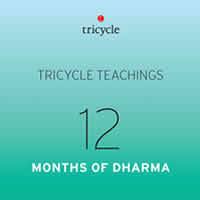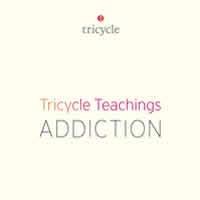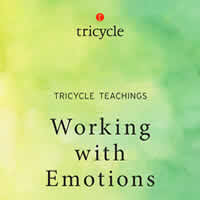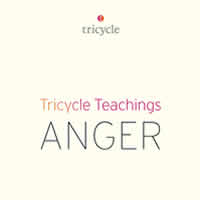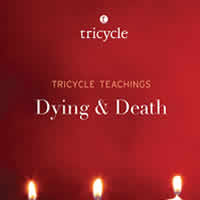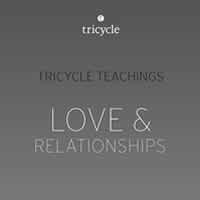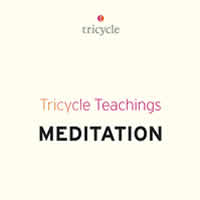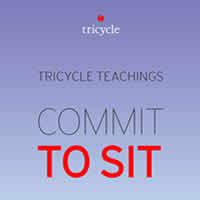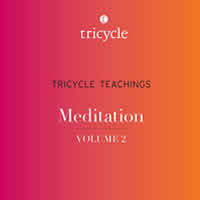
- Trang NhàReturn Home
- Audio & VideoFind Help Here
- Audio
- Ajahn Chah
- Eckhart Tolle
- Sức Mạnh Hiện Tiền
- Khi Im Lắng Cất Lời
- Thức Tỉnh Mục Đích Sống
- Art of Presence
- Enter The Now
- Even The Sun Will Die
- Realization of Being
- Gateway Now
- Sư Trí Dũng
- Sư Tâm Pháp
- Sư Chân Tuệ
- Thích Phước Tịnh
- Video
- Sư Trí Dũng
- Pháp Thoại Trên Zoom
- Kinh Pháp Cú Trên Zoom
- Mây Từ Kỳ 1 2020
- Mây Từ Kỳ 2 2020
- Mây Từ Kỳ 1 2019
- Mây Từ Kỳ 2 2019
- Mây Từ Kỳ 3 2019
- Mây Từ Kỳ 4 2019
- Mây Từ Kỳ 5 2019
- Mây Từ Kỳ 6 2019
- Phước Sơn 2019
- Thích Ca Thiền Viện 2019
- Thích Ca Thiện Viện 2018
- Thiền Viện Phước Sơn 2018
- Thiền Viện Phước Sơn 2017
- Thích Ca Thiền Viện 2017
- Thích Ca Thiền Viện 2016
- Thích Ca Thiền Viện 2015
- Thích Ca Thiền Viện 2014
- Thích Ca Thiền Viện 2013
- Mây Từ Kỳ 4 2018
- Mây Từ Kỳ 3 2018
- Mây Từ Kỳ 2 2018
- Mây Từ Kỳ 1 2018
- Mây Từ Kỳ 6 2017
- Mây Từ Kỳ 5 2017
- Mây Từ 2017 Kỳ 4
- Mây Từ 2017 Kỳ 3
- Mây Từ 2017 Kỳ 2
- Mây Từ 2017 Kỳ 1
- Mây Từ 2016 Kỳ 7
- Mây Từ 2016 Kỳ 6
- Mây Từ 2016 Kỳ 5
- Mây Từ 2016 Kỳ 4
- Mây Từ 2016 Kỳ 3
- Mây Từ 2016 Kỳ 2
- Mây Từ 2016 Kỳ 1
- Mây Từ 2015
- Mây Từ 2014
- Pháp Thoại
- Phật Pháp Ứng Dụng
- Thích Phước Tịnh
- Thích Tâm Thành
- Sư Trí Dũng
- Audio
- Thông Tin
- SáchTools and Modules
- Bài ViếtResponsive Layout
- Sống Khỏe
- English
- Liên Lạc
 Xin email tới: This email address is being protected from spambots. You need JavaScript enabled to view it.
Xin email tới: This email address is being protected from spambots. You need JavaScript enabled to view it.
- Home \\
- Sách \\
- Tricycle Magazine
THE DIGNITY OF RESTRAINT
It's always interesting to notice how words disappear from common us- age. We have them in our passive vocabulary, we know their meaning, but they tend to disappear from day-to-day conversation—which usu- ally means that they've disappeared from the way we shape our lives.
LEANING INTO RAWNESS
I used to love getting stoned. I especially loved to get stoned and read dharma. When stoned I was never bored: Every single piece of my world was reliably fascinating. My curiosity and delight with any- and every- body was palpable. I could read the newspaper and not have
TAMING DESTRUCTIVE EMTIONS
In your book, Destructive Emotions, you write that "recognizing and transforming destructive emotions is the heart of spiritual practice." Can you tell us what you mean by "destructive emotions"? There are two perspectives, one from the East and the other from the West.
PUTTING DOWN THE ARROW
Attachment and anger are two sides of the same coin. Because of ig- norance, and the mind's split into object-subject duality, we grasp at or push away what we perceive as external to us. When we encounter something we want and can't get, or someone prevents us from
LIGHTEN YOUR LOAD
We're going to look at one of the perfection practices known as thepa- ramis (see below). It's the practice of nekkhamma, which we translate as "renunciation" or "relinquishing." It means letting go: letting go of mate- rial things as well as views, concepts, ideas
ONLY THE PRACTICE OF DHARMA CAN HELP US AT THE TIME OF DEATH
hroughout our lives, our body has been our closest compan- ion. At times it has seemed to be who we are. We have spent hours washing and cleaning and clipping and oiling and combing and brushing, taking care of our body in all kinds of ways. We have fed it and rested it.
GIVING THROUGH RELATIONSHIPS
We often look to relationships as a source of our personal happiness. Our relationships with our partners, friends, and family can certainly be enjoyable, and they enrich many dimensions of living. However, much of our unhappiness in life also
FINDING SENSE IN SENSATION
The Buddha was the foremost scientist of mind and matter (nama and rupa). What makes him a peerless scientist is his discovery that tanha, or craving, and by extension, aversion—arises from vedana, or sensation on the body.
Before the time of the Buddha, little if any
SOUND MEDITATION
Deep hearing, then, is not just an auditory sensation, involving the ear, but a matter of the whole. "Deep hearing of the dharma" means em- bodying the buddhadharma, an experiential awakening of the total self, conscious and unconscious, mind and body. —Rev. Taitetsu Unnone
INTRODUCTION
We don't have to remind you how toxic our lives can be. Stress at work, arguments with loved ones, poor diets, and too many hectic weekends conjure daydreams of Himalayan caves—guaranteed not to have cell phone reception. But in reality, even that retreat you've been planning
YOUR LIFE IS YOUR PRACTICE
In human life, if you feel that you have made a mistake, you don't try to undo the past or the present, but you just accept where you are and work from there. Tremendous openness as to where you are is necessary. This also applies to the practice of meditation,
Trang Nhà
Audio & Video
- Audio
- Ajahn Chah
- Eckhart Tolle
- Sức Mạnh Hiện Tiền
- Khi Im Lắng Cất Lời
- Thức Tỉnh Mục Đích Sống
- Art of Presence
- Enter The Now
- Even The Sun Will Die
- Realization of Being
- Gateway Now
- Findhorn Retreat 2005
- Living The Liberated LIfe
- In The Presence of A Great Mystery
- Flower of Human Consciousness
- Meditation Now
- Power of Now
- New Earth
- Through The Open Door
- Journey To Yourself
- Life Situation
- Practice Power of Now
- Secret of Realization
- The Time is Now
- Stillness Speaking
- Sư Trí Dũng
- Sư Tâm Pháp
- Sư Chân Tuệ
- Thích Phước Tịnh
- I. Kinh Văn Nguyên Thủy
- II. Kinh Văn Phát Triển
- III. Văn Học Thiền
- IV. Pháp Thoại
- V. Luật Học
- VI. Liên Hệ Giửa Tứ Niệm Xứ & Thiền Đông Độ
- VII. Lịch Sử Phật Giáo
- VIII. Pháp Thoại Mới
- IX. Hạnh Nguyện Người Xuất Gia
- X. Lớp Học Trực Tuyến
- Thích Tâm Thành
- U Jotika
- U Tejaniya
- S. N. Goenka
- Sách Nói
- Nhạc
- Video
- Sư Trí Dũng
- Pháp Thoại Trên Zoom
- Kinh Pháp Cú Trên Zoom
- Mây Từ Kỳ 1 2020
- Mây Từ Kỳ 2 2020
- Mây Từ Kỳ 1 2019
- Mây Từ Kỳ 2 2019
- Mây Từ Kỳ 3 2019
- Mây Từ Kỳ 4 2019
- Mây Từ Kỳ 5 2019
- Mây Từ Kỳ 6 2019
- Phước Sơn 2019
- Thích Ca Thiền Viện 2019
- Thích Ca Thiện Viện 2018
- Thiền Viện Phước Sơn 2018
- Thiền Viện Phước Sơn 2017
- Thích Ca Thiền Viện 2017
- Thích Ca Thiền Viện 2016
- Thích Ca Thiền Viện 2015
- Thích Ca Thiền Viện 2014
- Thích Ca Thiền Viện 2013
- Mây Từ Kỳ 4 2018
- Mây Từ Kỳ 3 2018
- Mây Từ Kỳ 2 2018
- Mây Từ Kỳ 1 2018
- Mây Từ Kỳ 6 2017
- Mây Từ Kỳ 5 2017
- Mây Từ 2017 Kỳ 4
- Mây Từ 2017 Kỳ 3
- Mây Từ 2017 Kỳ 2
- Mây Từ 2017 Kỳ 1
- Mây Từ 2016 Kỳ 7
- Mây Từ 2016 Kỳ 6
- Mây Từ 2016 Kỳ 5
- Mây Từ 2016 Kỳ 4
- Mây Từ 2016 Kỳ 3
- Mây Từ 2016 Kỳ 2
- Mây Từ 2016 Kỳ 1
- Mây Từ 2015
- Mây Từ 2014
- Pháp Thoại
- Phật Pháp Ứng Dụng
- Thích Phước Tịnh
- Thích Tâm Thành
- 2018
- 2016
- 2015
- 2014
- 2013
- 2012
- 2011
- Sư Trí Dũng
